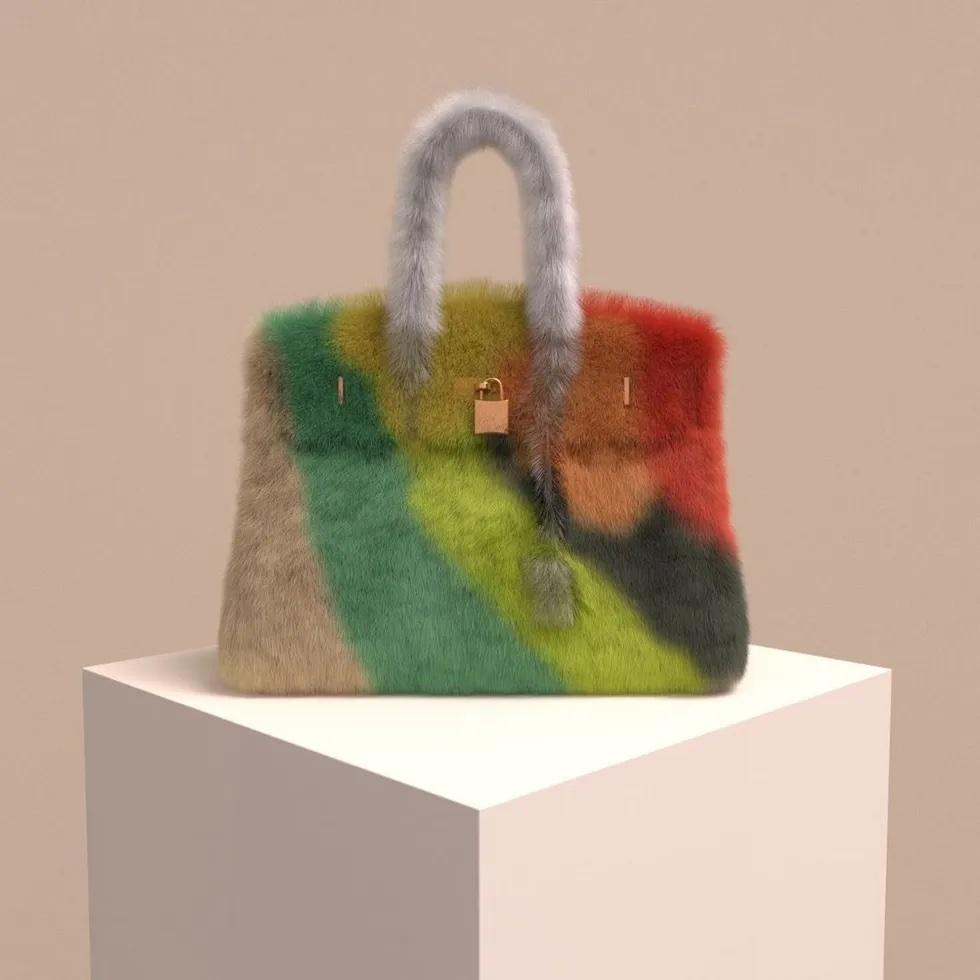New technologies give rise to new intellectual property headaches. Non-fungible tokens or NFT’s are no exception. What is an NFT? For the uninitiated (and hermits), an NFT is a unique digital token that one can own, sell, or redeem. Bitcoin and Ethereum are examples of digital tokens. Cryptocurrency, however, is fungible. The Bitcoin I own is not unique and can be exchanged with other Bitcoins of equal value. NFT’s, which are created using the same block chain technology, are non-fungible, meaning they represent a unique or one-of-a-kind digital asset. Think of an NFT as a digital certificate of authenticity. If you own an NFT that represents a work of art (a digital work of art, of course), you own a unique and authentic work. NFT’s, or more properly, the digital works represented by the NFT, are still subject to trademark and copyright law. First, some more background.
The press has reported that trading in non-fungible tokens reached $17.6 billion last year, which represents a 21,000% increase over the year before. The same source reports that NFT’s generated $5.4 billion of profits through sales of tokens in 2021. Rapid commercial growth is usually reflected in the rate of trademark filings. A quick and dirty search on the USPTO’s TESS database revealed that in 2020 only four applications mentioned NFT’s in the description of goods and services; in 2021, the number increased to 1,314 trademark applications; and in the first 4 months of 2022, there have been 3,801 trademark applications mentioning NFT’s! Along with the rapid commercial growth of NFT’s is the hype.
Applying for trademarks related to NFT’s is no different than any other product or service; there is nothing special. The trademark must be used in commerce, it must be distinctive; and it must be used as a trademark, that is, as a source identifier for specific goods and services. Registered trademark associated with NFT’s identify design services, educational services, and downloadable software.
If there’s nothing special about NFT trademarks, then what is the problem? The problem is that trademark owners, who have a duty to police their trademarks, have another huge new space to monitor trademark use. And monitor them, they do – particularly the big brands. NFT disputes are, in fact, becoming more common. Here are some examples.
Hermes International filed a suit against Mason Rothschild in January 2022, alleging that Rothschild was marketing NFT’s referred to as METABIRKINS. BIRKIN is a brand of Hermes bags. The so-called METABIRKINS consisted of a collection of digital images of blurry Birkin bags (see the above image), which according to the plaintiff sold for as much as the original bags themselves (what?). The complaint asserted:
“Meta” and “metaverse” refer to virtual worlds and economies where digital assets such as NFTs can be sold and traded. METABIRKINS simply means “BIRKINS in the metaverse.” Defendant adopted METABIRKINS as a trademark and promoted his METABIRKINS business in conjunction with the use of other Hermès trademarks in a calculated attempt to explicitly mislead the general public into believing Hermès authorized his METABIRKINS business, including his METABIRKINS collection of NFTs.
In another case, Darden Restaurants, owner of Olive Gardens, served a takedown notice on OpenSea, an NFT marketplace, demanding it remove photos of Olive Garden Restaurants, being marketed as NFT’s, because they infringed Darden’s copyrights and trademarks. In response, OpenSea delisted them. In February, Nike filed a lawsuit against online retailer StockX, alleging trademark infringement, misrepresentation and unfair competition. StockX was selling NFT’s of Nike sneakers. In another notable case, Quentin Tarantino created an NFT of his Pulp Fiction screenplay, which sold for $1.1 million. Miramax tried unsuccessfully to stop the sale and then filed a lawsuit in which it claimed contractual and ownership rights in the intellectual property. Interestingly, Miramax argued that “This one-off effort devalues the NFT rights to Pulp Fiction, which Miramax intends to maximize through a strategic, comprehensive approach.” In other words, Tarantino beat Miramax to the pot of gold. Tarantino responded by fiercely condemning Miramax and asserting that its claims were meritless.
We will continue to follow these cases and others. In the meantime, if you have an NFT or NFT service for which you wish to register a trademark, or if you want to pursue an NFT infringer, contact the lawyers at Lipton, Weinberger & Husick. We can help.
— Adam G. Garson, Esq.


